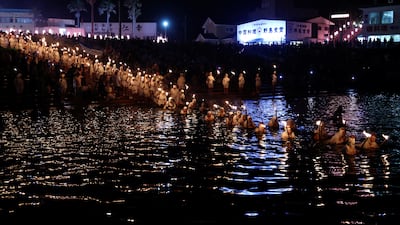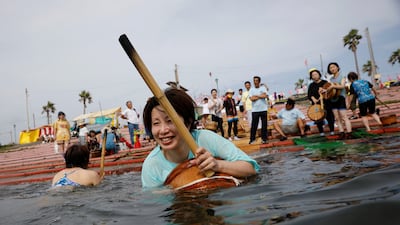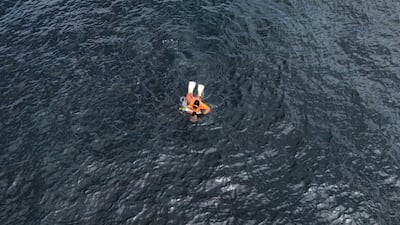Bearing torches that light up the night as they swim out into the Pacific, Japan's storied "ama", or "women of the sea", pray for an abundant catch in a ceremony held by these female free divers for decades.
This year, however, most of the 80 white-clad women in Minamiboso, about 100km south of Tokyo, were volunteers, as age and disinterest cause the number of ama to dwindle in the fishing community.
Japan has the world's oldest population and last year the number of female free divers fell to 40 in the Shirahama district of Minamiboso, down 70 per cent from 2006, a local fisheries co-operative says. The group had an average age of 72 in 2023, compared with 68 in 2006.
"Those who still go out to sea are getting rather old. We have managed to keep the festival going by asking people in this area and beyond for co-operation," says Shoichi Iida, who has helped to organise the event for years.
The ama still follow their centuries-old traditions and dive to fish without any scuba gear or air tanks. Many say the work is hard and promises little pay, with few young women keen to keep the tradition going.
"This is not the kind of job on which you can make instant money," said Yoshino Hirano, who has worked as an ama for 16 years.
But not everyone is dissuaded from joining the group. Ayumi Inoue, 51, trained to become an ama three years ago.
"I grew up seeing older women working as ama and found the smiles on their sun-tanned faces very attractive and cool," she says. "Seeing the number of ama divers dwindling, to be honest, makes me sad."











